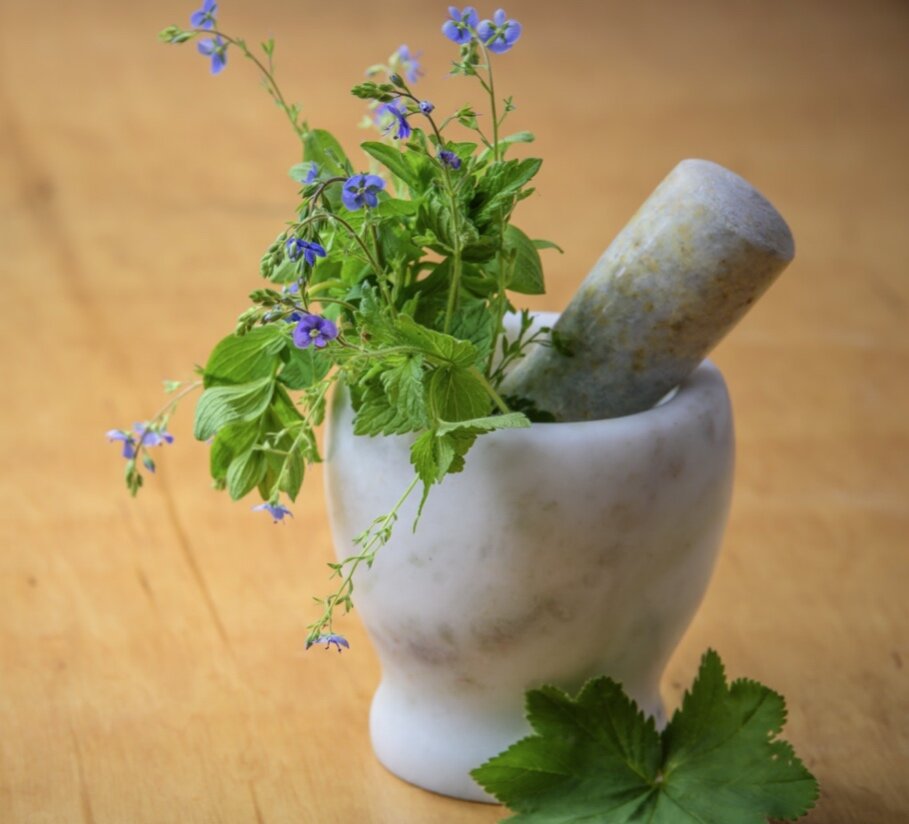THE IMPORTANCE OF TRADITIONAL AFRICAN MEDICINE
As a college student who is incredibly interested in both plant-based medicine and the biochemistry of drugs, I find the intersection of these two topics in traditional medicine to be extremely fascinating. Traditional medicine is described by the World Health Organization (WHO) as “the sum total of knowledge or practices whether explicable or inexplicable, used in diagnosing, preventing or eliminating physical, mental, or social disease which may rely exclusively on past experience or observations handed down from generation to generation, verbally or in writing” [2]. Traditional medicine is especially important in the continent of Africa as approximately 80% of the population lives in rural areas where access to orthodox medicine is scarce. In these areas, traditional medicine is more easily accessible, affordable, and available to civilians. In fact, over 80% of the population in Africa uses traditional medicine as their primary source of healthcare treatment for common ailments such as headaches and fever [1]
There are two different aspects of traditional medicine, the explicable and the inexplicable. The explicable aspect is the side that can be explained scientifically, for example, the use of the willow plant (Salix alba) for its fever-reducing and pain-relieving properties, which later led to the discovery of aspirin. The inexplicable aspect is characterized by the spiritual or metaphysical properties of plants that cannot be easily understood through the scientific method [1]. Traditional African Medicine, (TAM), has become more respected in recent years as the WHO has incentivized many African countries to expand their developments on TAM, and has encouraged others to recognize TAM as a legitimate form of health care, through the “institutionalization of traditional medicine in parallel (not in complete fusion) with orthodox medicine, within the national health scheme in order to move the health agenda forward” [1].
It’s extremely important that we normalize TAM as a respectable method of healthcare as it is only then that we can work to resolve the issues involved, such as the “lack of adequate scientific proof, imprecise diagnosis and dosage, unstandardized medicines and occultic practices” [1]. Currently, these disadvantages of TAM have not been settled as the practice has not yet received the attention or respect this task would require. I think a lot of people forget that ‘modern-day medicine’ came from hundreds of years of traditional medicinal practices. Scientists didn’t just create modern-day drugs and medicines out of thin air, they were all derived from organic materials such as plants, animals, fungi, bacteria, etc. I believe the faster we can institutionalize TAM the way we have with orthodox medicine, the faster we can debunk common misconceptions about TAM practices, making healthcare even more accurate and accessible to the various African countries that rely so heavily on them.
Written By Miranda Hiller
Elujoba, A., Odeleye, O. & Ogunyemi, C. (2005). Traditional medicine development for medical and dental primary health care delivery system in Africa. African Journal of Traditional, Complementary and Alternative Medicines, 2(1). https://doi.org/10.4314/ajtcam.v2i1.31103
Primary health care: Report of the international conference on primary health care. Alma-ata, ussr, 6-12 sept. 1978. Jointly sponsored by the who and the unicef.(1978). WHO.


